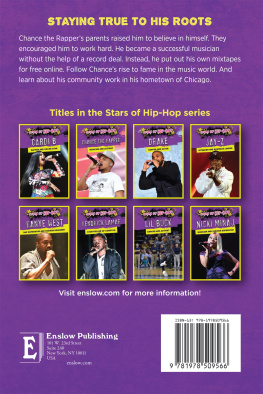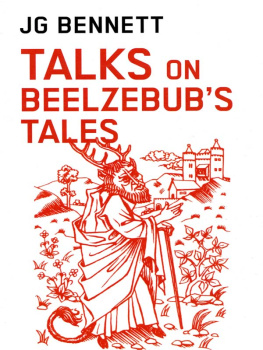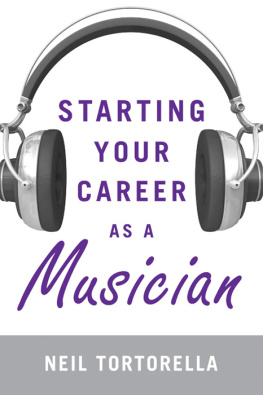Legacy Editions
Edited by Howard S. Becker and Mitchell Duneier
Learning to Labor: How Working-Class Kids Get Working-Class Jobs, Paul Willis, with foreword by Stanley Aronowitz
The Levittowners: Ways of Life and Politics in a New Suburban Community, Herbert J. Gans, with foreword by Harvey Molotch
On Becoming a Rock Musician, H. Stith Bennett, with foreword by Howard S. Becker
Morals and Markets: The Development of Life Insurance in the United States, Viviana Zelizer, with foreword by Kieran Healy
Columbia University Press
Publishers Since 1893
New York Chichester, West Sussex
cup.columbia.edu
Copyright 2017 Columbia University Press
All rights reserved
EISBN 978-0-231-54440-5
ISBN 978-0-231-18284-3 (cloth : alk. paper) |
ISBN 978-0-231-18285-0 (pbk. : alk. paper) |
ISBN 978-0-231-54440-5 (e-book)
Library of Congress Control Number: 2016956459
A Columbia University Press E-book.
CUP would be pleased to hear about your reading experience with this e-book at .
Cover design: Mary Ann Smith
Cover image: New York City / Alamy Stock Photo
Howard S. Becker
C an a book published in 1980 still bring us news on the subject of contemporary pop music? Stith Bennetts pioneering study combines the skills and knowledge of a top-notch sociologist with the comparative and technologically informed perspective of an ethnomusicologist to do just that. For the most part, studies of pop music focus on the symbolic content of the words of recorded songs, the political and social attitudes those words convey, or the business arrangements that underlie the music and make the whole thing possiblethey never get around to the notes the players play, the sounds they make, and how they make them.
Bennett, making just such matters central to his analysis, produces a startling, almost apocalyptic, conclusion: that the kind of pop music that began in the 1950s or 1960s, or whenever it began, inaugurated a distinctly new direction in Western music, and did so by bypassing the lengthy history of music stored, taught, and transmitted by written notation, replacing it with an aural notation derived from recorded studio music. This is a large claim, based surprisingly on the study of music made by a crowd of musically illiterate players. Is that how music history gets made?
Based on his long and intensive observation of a small population of such players in Colorado, Bennett makes a convincing argument that new ways of reading and writing music and, consequently, new ways of becoming and being a musician, came into being in the early 1970s (or thereabouts). In fact, he gives us a ringside seat at the birth of a new art world: new relations of interdependence clustered around new electronic technologies, new performance venues, and new systems of distribution, all of which totally changed what it meant to make and hear music. In so doing, Bennett shows interested readers how one can go about the study of any new social world.
Bennett learned by spending a lot of time associating with and participating in the activities of young local recruits to what he calls The Music, the popular music on the air that kids everywhere were practicing in their parents garages. He describes his two years of serious data gathering this way:
My research technique was based on a willingness (and in most cases, ability) to present myself as a musician to other musicians who had indicated in some way that they were interested in forming a group. I actively pursued some formation attempts and several times a performing group was the result. (xi)
He wrote extensive notes on all of it. Excerpts from his field notes show the depth of his involvement as a player and participant. His copious documentation displays the skilled observational techniques and interviewing tactics that produced his deep understanding of the path from inexperienced musician to working professional.
This relatively small book effortlessly and economically explains the small but revolutionary shift these boys (and his descriptions make clear that they were all boys) in garages were creatingnot because they were inventive musical geniuses but because, given their lack of technical musical knowledge and skills, their methods were the only way they knew to reproduce the music they heard on the radio and records. They saved their money until they could buy one of the guitars (or basses, or drum sets) they lusted after in local music stores, and then taught themselves, the hard way, to play themwithout a teacher or instruction book, without lessons or classesby picking at the strings and playing along until they found a way to make one of the sounds they heard. After interminable hours of this, they could turn the three basic chords they had discoveredthe backbone of the music they wanted to playinto a replica of the sounds on the records.
At that point, they found, one way or another, three or four others who had similarly acquired instruments and rudimentary knowledge of the variety of instruments they heard on the records they wanted to imitate. And then the new group taught themselves (just as they had initially individually learned to play their instruments) a song from one of the records that took the place of a written score they couldnt have read, spending days and weeks getting the song until they could approximate the original. And then it was on to the next song.
Mind you, this is the progression successful groups follow. Most cant manage to learn a whole sets worth of music before some inevitable difficulties arise. Complaining neighbors, internal conflicts, or sheer discouragement at how long it is all taking knock out most contenders.
Bennett follows the progression of the relatively few groups who first learn one song, and then enough to make up a complete set. At that point they have enough repertoire to offer their services to potential employers: bar owners or groups of their age-mates looking for entertainment and music for their parties and ceremonial occasions.
For those who do find employment, the bar, dance venue, auditorium, or outdoor concert area presents new difficulties that require them to learn more new skills. The most important new challenges stem from the physics of sound, which Bennett explains elegantly and economically; and from the inevitable differences between live performance and music made in a technologically advanced studio by musicians who may not be in the same room and may not even be playing at the same time. In a studio, sound engineers individually mix this mlange of sounds, creating a complete track that no one, however skilled, can reproduce in live performance.
The newly formed band learns, if they want to get the jobs that will keep the band working and playing, to make approximations that overcome not only the unavoidable physical difficulties of reproducing a recorded performance, but also the troubles added by the socially created troubles of bar noise, dancers inattention, and all the rest of the clutter of ordinary life.
Bennett tells us, finally, how the most successful of these musicians learn to use and manipulate the new musical sounds that electrified instruments make possible, the kind no one can produce on an acoustic Spanish guitar or an acoustic bass, but that can be made with an













